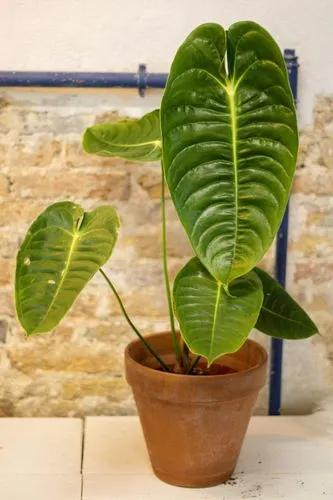Ficus petiolaris, commonly known as the petiolate fig and rock fig, is a fig that is endemic to Mexico from Baja California and Sonora south to Oaxaca. It grows from 10–20 feet high. A unique feature is white hairs on the vein axils.
Petiolate fig Care
Ficus petiolaris



Ficus petiolaris, commonly known as the petiolate fig and rock fig, is an unusual caudexed fig up to of 8-15 m tall that often grow on sheer canyon walls, cliffs, and mountain rocks. The roots grasp and cascade down the surface as if melted and poured over the rock face. If the roots reach moist soil the plant develops into a tree (to 25 m in tropical canyons), other-wise it may remain dwarfed as a shrub, or stunted as dwarf shrubs when freeze damaged at higher elevations, especially at the northern limits). The leaves are heart shaped, glaucous green above and with a tuft of whitish hairs on the vein axils underneath. The flowers and fruits are green with red and velvety spots. The foliage is evergreen or sometimes drought deciduous. The papery yellow bark and purple-veined cordate leaves, as well as the grotesque shape, make this fig a most striking object. It is grown in desert vivaria and can be trained to look like bonsai. Young plants have bulbous bases (caudexes) that persist for many years in cultivation.
How to Care for the Plant

Water

Don't allow potting mix to become completely dry, especially during the warmer months. Water sparingly in winter to maintain leaves (it's not harmful if leaves drop during winter).

Fertilizer

Fertilize once a month during the growing season as long as you want it to grow. If it has reached its desired size, fertilize only once or twice a year. Ficus plants need fertilizer that is rich in nitrogen.

Sunlight

Nearly full sun to moderate shade. Exposed stems and roots may sunburn in full afternoon sun.

Soil

Choose a well-drained potting mix.

Temperature

The plant is frost tender and needs protection from freezing. Inside, average room temperatures from 65°F/18.3°C to 75°F/23.8°C.

Container

As a houseplant, it must be grown in a pot for frost protection and to control size. Choose a pot with enough drainage holes.

Popularity

290 people already have this plant 11 people have added this plant to their wishlists
Discover more plants with the list below
Popular articles






